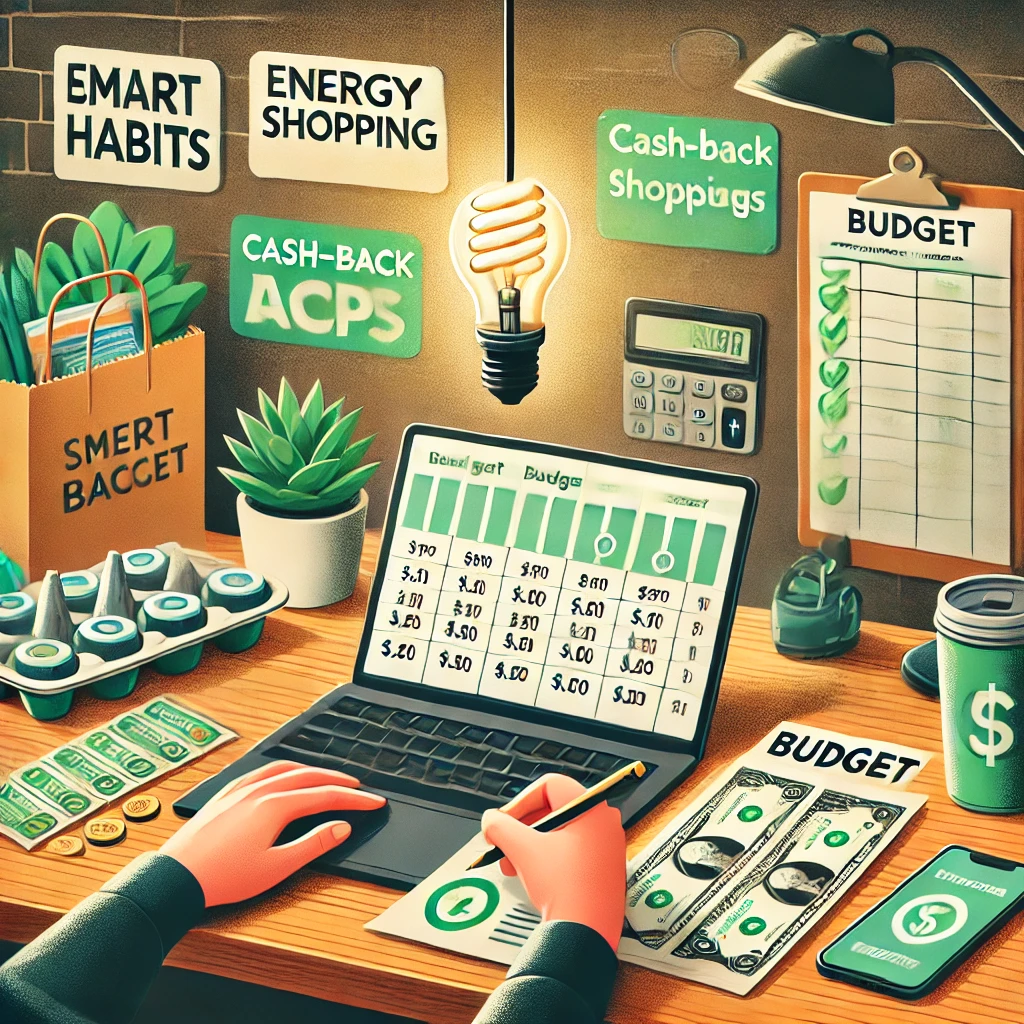
Saving money on everyday expenses doesn’t have to feel like a sacrifice. With some thoughtful adjustments to your daily routines and a commitment to smarter spending habits, you can save significantly without compromising your quality of life. Whether it’s meal prepping to avoid the lure of takeout or implementing small changes in how you manage household utilities, each step you take can build up to substantial savings over time.
Why Smart Habits Matter
At the core of saving money lies the simple yet powerful concept of habits. Many people don’t realize that the small decisions they make daily have a cumulative effect on their finances. When you make it a habit to evaluate your purchases, compare prices, and avoid unnecessary expenses, you slowly but steadily increase the money you can save each month. These smart habits become second nature, leading to long-term financial stability.
Consistency is key. Developing mindful financial habits helps reduce wasteful spending and creates a sense of control over your budget, empowering you to make more informed financial decisions.
Track Your Spending for Better Control
You can’t fix what you don’t track. Understanding where your money goes is the first step toward better financial health. By keeping a record of your daily expenses, you can identify patterns of wasteful spending and opportunities to cut back.
You don’t need complicated software to track your finances; a simple spreadsheet or budgeting app can work wonders. By categorizing your spending into food, entertainment, utilities, and transportation, you gain a clear picture of where adjustments can be made. Plus, tracking your expenses helps prevent “small” purchases from snowballing into larger financial problems.
Create a Realistic Budget
Once you’ve tracked your expenses, it’s time to create a budget that reflects your spending patterns and financial goals. A realistic budget is not about restricting your lifestyle but rather about being mindful of where your money is going.
A good rule of thumb is to follow the 50/30/20 rule: allocate 50% of your income toward needs, 30% toward wants, and 20% toward savings or debt reduction. This framework ensures that you’re not only covering your essentials but also allowing some flexibility for personal enjoyment without sacrificing your long-term financial health.
Make sure to adjust your budget periodically to reflect changes in income, expenses, or savings goals.
Cut Unnecessary Subscriptions
In the digital age, it’s easy to lose track of subscriptions that eat away at your income each month. From streaming services to subscription boxes, these small fees can add up quickly.
Take time to review your monthly subscriptions. Cancel the ones you rarely use or can live without. Many services offer free trials or discounts to entice you back—make use of these but avoid becoming reliant on non-essential subscriptions.
Smart Grocery Shopping Strategies
Groceries are one of the largest variable expenses in most households, but with the right strategies, you can significantly cut costs without compromising the quality of your meals. Start by planning your meals for the week, which prevents impulse buys and reduces food waste. Always create a grocery list and stick to it.
Buying in bulk is another effective way to save, particularly for non-perishable items like rice, pasta, or canned goods. Also, take advantage of store sales, coupons, and cash-back apps to maximize your grocery budget.
Cook at Home and Avoid Eating Out
One of the easiest ways to save money is by reducing how often you eat out. A single restaurant meal can cost as much as a week’s worth of groceries, so cooking at home can have a dramatic impact on your budget.
Meal prepping is an excellent habit to adopt. By preparing meals in bulk, you can ensure that you always have something ready to eat, avoiding the temptation of fast food or takeout. Plus, cooking at home allows you to control the ingredients, ensuring healthier, more nutritious meals.
Use Cash-Back and Rewards Programs
Cash-back apps and rewards programs are an easy way to get a little something extra out of your everyday purchases. Many credit cards offer points or cash back for specific categories like groceries, gas, or dining out. Some apps, like Rakuten or Ibotta, give you cash back for shopping through their portals.
While these programs won’t make you rich, they can help offset some of your regular expenses. Just be sure not to overspend in pursuit of points or rewards—this would defeat the purpose of saving.
Energy Efficiency in the Home
Utility bills are a major recurring expense, but they don’t have to be. Simple changes around the house can lead to significant savings. Start by switching to energy-efficient appliances and light bulbs, which use less electricity and last longer than traditional models.
Consider insulating your home to reduce heating and cooling costs. Even small changes, like sealing windows or using a programmable thermostat, can help you save on energy bills over time.
Turning off lights when you leave a room, unplugging electronics that aren’t in use, and washing clothes in cold water are small habits that, when combined, result in noticeable savings.
You Can Also Read; How to Minimize Investment Risks with Diversification
Reduce Transportation Costs
Transportation costs can be surprisingly high, especially if you’re commuting daily or driving long distances. Consider using public transportation, carpooling, biking, or even walking where possible.
If you must drive, look into fuel-efficient vehicles or electric cars that can help reduce fuel costs. Regular vehicle maintenance, such as oil changes and tire rotations, also keeps your car running efficiently, saving money in the long run.